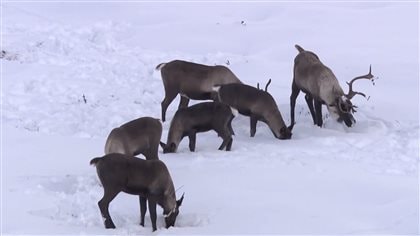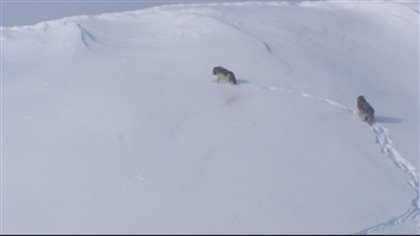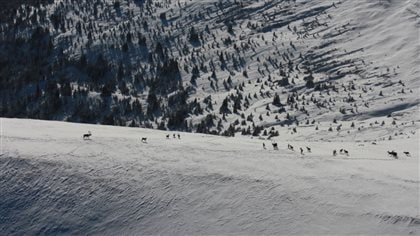Some research professors in British Columbia, Alberta, and Saskatchewan are arguing against the western wolf cull currently being carried out by the provinces of Alberta and British Columbia.
In a paper published online this week, they say the killing of wolves from helicopters and through poisoning, is unethical.
The authors also criticize the Canadian Journal of Zoology for publishing the Alberta government’s position.
Governments in the western provinces have promoted wolf culls as the solution to save dwindling caribou herds.

University of Saskatchewan Agriculture and Bioresources professor Ryan Brook, says culling predators is not the best way to save the caribou. Quoted in the Saskatoon Star-Phoenix, he says, “This isn’t about wolves. This is about human development- oil and gas development, forestry. You look at lands used by woodland caribou in Alberta and ask how much of that is being saved? Well, not a whole lot.”
The Star Phoenix story adds that several other animals, ravens, and foxes for example, have also been killed from eating the poisoned wolf bait.
An Alberta government biologist says there’s no other way to keep wolf numbers low enough to help caribou. Dave Hervieux, woodland caribou specialists, says stopping the cull would doom the herds and he makes no apology for using the information it generated to gauge how successful it has been.
Hervieux says they have killed about 900 wolves so far in the past eight years. That research showed that killing wolves has stabilized caribou numbers, but barely.
In British Columbia’s effort to save mountain caribou, the Assistant Deputy Minister Tom Ethier said this year’s plan to kill 180-200 wolves in the Rockies is just the beginning.
He says they will continue for the next five years and then assess results.

Mountain caribou, a subspecies which has become adapted to life in the mountains, are especially threatened with the individual herd numbers dropping dramatically in the past few years. The Selkirk herd in five years has gone from 46 animals to 18, while further north in the Peace region, the Moberly herd went from 190 animals two decades ago, to just 22 today.
Mountain caribou are not typically hunted by wolves. BC conservationists say opening up areas to development, and human activities such as snowmobiling and ATV traffic which breaks trails into the higher elevations, makes it easier for wolves to travel up the to where the mountain caribou are.

The BC government says wolves are responsible for up to 40 percent of caribou deaths and has also now said 90 percent of the mountain caribou habitat in the Peace district will now be protected from development. It says recreationaly activity like snowmobiling will also be banned in some areas and any industrial projects will be planned with caribou recovery in mind.
Back in Alberta, Carolyn Campbell of the Albera Wilderness Association told CBC reporter Chris Brown, that the provincial government was killing wolves but not protecting habitat as initially planned. Original supporters of the cull, the association therefore withdrew its support.
Campbell said, “This was a completely unethical approach, To only scapegoat wolves…they’re the symptom, not the cause, and do nothing about the habitat.”







For reasons beyond our control, and for an undetermined period of time, our comment section is now closed. However, our social networks remain open to your contributions.